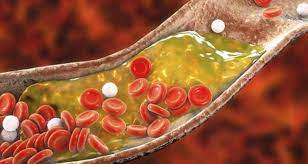What you should know about diabetes. Part II
Glucose metabolism:
1
Carbohydrate (sugars or starches) from food is converted to glucose in the
stomach and intestines.
2 Glucose
passes from the intestines into the bloodstream to be used. The leftover
glucose is stored in the liver.
3 The
presence of glucose at the intestinal level stimulates the release of insulin
by the pancreas.
4 Glucose
through the action of insulin enters the cells of the kidneys, brain, muscles
and other organs of the body for energy production.
Long-term health problems:
The
elevated plasma levels caused by diabetes can cause damage to large and small
blood vessels and nerves. Diabetes can also decrease the body's ability to
fight infection. As a result, people with diabetes are more likely to have
serious eye problems, kidney disease, heart attacks, strokes, high blood
pressure, poor circulation, tingling in the hands and feet, sexual problems,
amputations, and infections. Proper control of diabetes can help prevent these
problems or make them less serious.
Glucose balance:
Precise
blood sugar levels are maintained depending on the body's energy needs. Your doctor
can monitor the history of your glucose levels with a hemoglobin glucose
measurement.
Changes
needed for a healthy lifestyle
A. Select a
balanced diet together with your doctor
B. Schedule
meal times
C. Enjoy
exercise such as walking, swimming, or bicycling.
It is
important that the diabetic patient visit his DOCTOR regularly, follow his
instructions and not start any diet or exercise program without consulting him.
ALTERNATIVE
THERAPIES FOR THE CONTROL OF DIABETES.
Naturopathic
Medicine
Rehabilitation
medicine
Homeopathic
medicine
Cytotherapy
Medicine.
The purpose
of Cytotherapy has been to introduce molecules from organs, glands, or tissues
into the body that reactivate the altered systems, bringing them back to
homeostasis.
Thus, the only possibility of replacing aged or dead cells that have stopped releasing their secretions is
through the application of young cells.
The
Cytotherapy that has been used is based on piglet pituitary cells and has been
applied in patients with menopause, sexual dysfunction, diabetes mellitus type
I and II, senile dementia, and developmental deficiencies to slow down the
processes that lead to aging, and general degenerative diseases.
If you know
any diabetics share this information.
For more
information or appointments, call 322 134 6651. In Puerto Vallarta,
Jalisco, Mex.
Contact: jesus17021959@gmail.com
Good health everyone.

.jpg)







Comments
Post a Comment